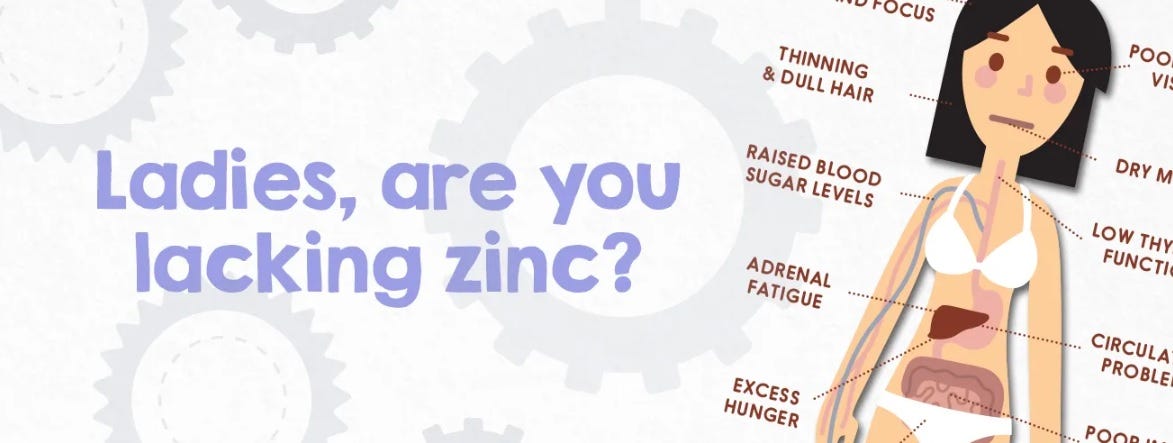


Key Benefits of Zinc Supplements for Women
Immune System Support:
Zinc is vital for a healthy immune system. It helps in the development and function of immune cells, and can reduce the duration and severity of colds and other infections.
Reproductive Health:
Zinc is important for reproductive health and fertility. It helps regulate hormone levels and supports the reproductive organs. Adequate zinc levels are essential for ovulation and the menstrual cycle.
Skin Health:
Zinc has anti-inflammatory properties and can help with various skin conditions such as acne, eczema, and psoriasis. It promotes wound healing and helps maintain healthy skin by supporting the production of collagen.
Hair Health:
Zinc plays a role in hair tissue growth and repair. It helps keep the oil glands around the hair follicles working properly, which can prevent hair loss and maintain healthy hair.
Bone Health:
Zinc is necessary for bone formation and mineralization. It works in synergy with other minerals like calcium and magnesium to maintain strong bones, which is particularly important for women to prevent osteoporosis.
Hormonal Balance:
Zinc helps regulate hormone levels, including thyroid hormones. It plays a role in maintaining healthy estrogen levels, which is crucial for reproductive health and overall well-being.
Pregnancy and Lactation:
During pregnancy, zinc is crucial for the growth and development of the fetus. It supports cell division, DNA synthesis, and immune function. Adequate zinc levels are also important during lactation to support the health of both the mother and the baby.
Mood and Cognitive Function:
Zinc is involved in neurotransmitter function and brain health. It may help improve mood and cognitive function, and there is some evidence suggesting it could be beneficial in managing depression and anxiety.
Antioxidant Properties:
Zinc acts as an antioxidant, helping to protect cells from oxidative stress and damage caused by free radicals. This can contribute to overall health and the prevention of chronic diseases.
Recommended Dosage and Considerations
Recommended Dosage: The recommended daily allowance (RDA) for zinc for adult women is about 8 milligrams. Pregnant and breastfeeding women may require higher amounts (11-12 mg/day).
Supplement Forms: Zinc supplements come in various forms, including zinc gluconate, zinc sulfate, and zinc acetate. The bioavailability of these forms can vary.
Potential Side Effects: Excessive zinc intake can lead to side effects such as nausea, vomiting, loss of appetite, stomach cramps, diarrhea, and headaches. Long-term high intake can interfere with the absorption of other essential minerals like copper.
Zinc supplements can offer numerous health benefits for women, supporting immune function, reproductive health, skin and hair health, bone strength, hormonal balance, and overall well-being.
It's important to adhere to recommended dosages and consult with a healthcare provider before starting any new supplement regimen, especially if you are pregnant, breastfeeding, or have underlying health conditions.
How does zinc deficiency affect women?
Zinc is an essential mineral that plays a crucial role in various physiological functions in the body. For women, zinc supplements can offer several specific health benefits:




